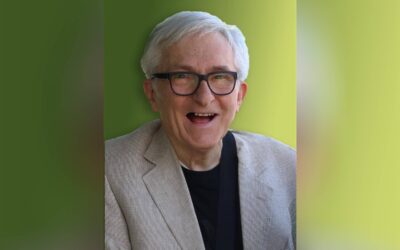 (…) War divides people, indeed it massacres them; and terrorism causes immense harm, through resentment or vengeance, due especially to the inequality between rich and poor countries in the world. Therefore, more than ever before, it is necessary to aim at unity and to foster brotherhood everywhere, a brotherhood which can also generate the sharing of goods. But how is it possible to kindle a brotherhood in the world that will draw all humanity into one single family? It can be done, certainly, by rediscovering who God is. We Christians believe in God, we know that he exists, but while we see him as being all-perfect, all-knowing and all-powerful, we often consider him to be far from us, unapproachable, consequently we do not have a relationship with him. John the Evangelist tells us who God is: “God is Love” (1 Jn 4:8) and for this reason he is our Father and the Father of all. Everything changes if we understand this statement in depth. If God is Love and he is our Father, he is close to us, to me, to each one of you, to us all; he follows our every step, he hides behind all the circumstances of our life, happy, sad or indifferent; he knows all about you, about us. Jesus tells us this, for example when he says: “Even the hairs of your head have all been counted” (Lk 12:7), counted by his love, by the love of a Father. Therefore, we must be certain that he loves us. But this is not enough: we must put God in the first place in our heart: before ourselves, before our possessions, before our dreams, before our relatives. Jesus says this very clearly: “Whoever loves father or mother more than me is not worthy of me” (Mt 10:37). This leads to another question: if God is Love, if he is our Father, what attitude should we have towards him? It’s obvious: if he is the Father of all of us, we must behave as his children and as brothers and sisters to one another; in practice we should live that love which is the synthesis of the Gospel, everything that heaven expects of us. Chiara Lubich
(…) War divides people, indeed it massacres them; and terrorism causes immense harm, through resentment or vengeance, due especially to the inequality between rich and poor countries in the world. Therefore, more than ever before, it is necessary to aim at unity and to foster brotherhood everywhere, a brotherhood which can also generate the sharing of goods. But how is it possible to kindle a brotherhood in the world that will draw all humanity into one single family? It can be done, certainly, by rediscovering who God is. We Christians believe in God, we know that he exists, but while we see him as being all-perfect, all-knowing and all-powerful, we often consider him to be far from us, unapproachable, consequently we do not have a relationship with him. John the Evangelist tells us who God is: “God is Love” (1 Jn 4:8) and for this reason he is our Father and the Father of all. Everything changes if we understand this statement in depth. If God is Love and he is our Father, he is close to us, to me, to each one of you, to us all; he follows our every step, he hides behind all the circumstances of our life, happy, sad or indifferent; he knows all about you, about us. Jesus tells us this, for example when he says: “Even the hairs of your head have all been counted” (Lk 12:7), counted by his love, by the love of a Father. Therefore, we must be certain that he loves us. But this is not enough: we must put God in the first place in our heart: before ourselves, before our possessions, before our dreams, before our relatives. Jesus says this very clearly: “Whoever loves father or mother more than me is not worthy of me” (Mt 10:37). This leads to another question: if God is Love, if he is our Father, what attitude should we have towards him? It’s obvious: if he is the Father of all of us, we must behave as his children and as brothers and sisters to one another; in practice we should live that love which is the synthesis of the Gospel, everything that heaven expects of us. Chiara Lubich




0 commenti